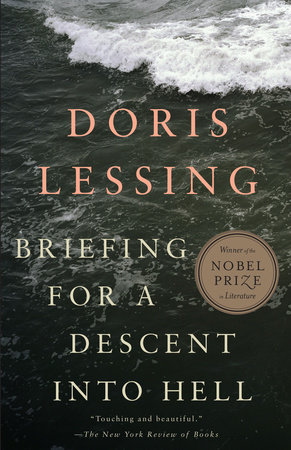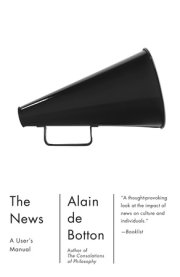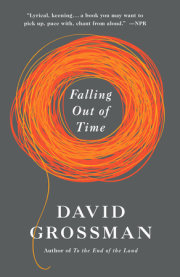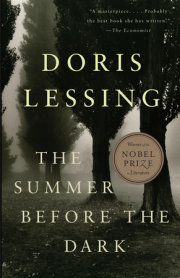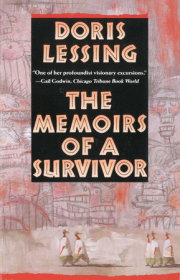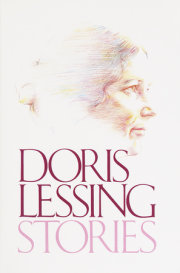CENTRAL INTAKE HOSPITAL
Friday 15th August 1969
ADMITTANCE SHEET
NAME: Unknown
SEX: Male
AGE: Unknown
ADDRESS: Unknown
GENERAL REMARKS: At midnight the police found Patient wandering on the Embankment near Waterloo Bridge. They took him into the station thinking he was drunk or drugged. They describe him as Rambling, Confused, and Amenable. Brought him to us at 3 a.m. by ambulance. During admittance Patient attempted several times to lie down on the desk. He seemed to think it was a boat or a raft. Police are checking ports, ships, etc. Patient was well dressed but had not changed his clothes for some time. He did not seem very hungry or thirsty. He was wearing trousers and a sweater, but he had no papers or wallet or money or marks of identity. Police think he was robbed. He is an educated man. He was given two Libriums but did not sleep. He was talking loudly. Patient was moved into the small Observation ward as he was disturbing the other Patients.
NIGHT NURSE. 6 A.M.
Patient has been awake all day, rambling, hallucinated, animated. Two Librium three-hourly. Police no information. Clothes sent for tracing, but unlikely to yield results: Chain-store sweater and shirt and underclothes. Trousers Italian. Patient still under the impression he is on some sort of voyage. Police say possibly an amateur or a yachtsman.
DOCTOR Y. 6 P.M.
I need a wind. A good strong wind. The air is stagnant. The current must be pounding along at a fair rate. Yes, but I can't feel it. Where's my compass? That went days ago, don't you remember? I need a wind, a good strong wind. I'll whistle for one. I would whistle for one if I had paid the piper. A wind from the East, hard on to my back, yes. Perhaps I am still too near the shore? After so many days at sea, too near the shore? But who knows, I might have drifted back again inshore. Oh no, no, I'll try rowing. The oars are gone, don't you remember, they went days ago. No, you must be nearer landfall than you think. The Cape Verde Islands were to starboard--when? Last week. Last when? That was no weak, that was my wife. The sea is saltier here than close in shore. A salt salt sea, the brine coming flecked off the horses' jaws to mine. On my face, thick crusts of salt. I can taste it. Tears, seawater. I can taste salt from the sea. From the desert. The deserted sea. Sea horses. Dunes. The wind flicks sand from the crest of dunes, spins off the curl of waves. Sand moves and sways and masses itself into waves, but slower. Slow. The eye that would measure the pace of sand horses, as I watch the rolling gallop of sea horses would be an eye indeed. Aye Aye. I. I could catch a horse, perhaps and ride it, but for me a sea horse, no horse of sand, since my time is man-time and it is God for deserts. Some ride dolphins. Plenty have testified. I may leave my sinking raft and cling to the neck of a sea horse, all the way to Jamaica and poor Charlie's Nancy, or, if the current swings me South at last, to the coast where the white bird is waiting.
Round and round and round I go, the Diamond Coast, the Canary Isles, a dip across the Tropic of Cancer and up and across with a shout at the West Indies to port, where Nancy waits for her poor Charlie, and around, giving the Sargasso Sea a miss to starboard, with Florida florissant to port, and around and around, in the swing of the Gulf Stream, and around, with the Azores just outside the turn of my elbow, and down, past the coasts of Portugal where my Conchita waits for me, passing Madeira, passing the Canaries, always en passant, to the Diamond Coast again, and so around, and so around again and again, for ever and ever unless the current swings me South. But that current could never take me South, no. A current is set in itself, inexorable as a bus route. The clockwise current of the Northern seas must carry me, carry me, unless . . . yes. They may divert me a little, yes they will, steering me with a small feather from their white wings, steadying me South, holding me safe across the cross not to say furious currents about the Equator but then, held safe and sound, I'd find the South Equatorial at last, at last, and safe from all the Sargassoes, the Scillas and the Charibs, I'd swoop beautifully and lightly, drifting with the sweet currents of the South down the edge of the Brazilian Highlands to the Waters of Peace. But I need a wind. The salt is seaming on the timbers and the old raft is wallowing in the swells and I am sick. I am sick enough to die. So heave ho my hearties, heave--no, they are all gone, dead and gone, they tied me to a mast and a great wave swept them from me, and I am alone, caught and tied to the North Equatorial Current with no landfall that I could ever long for anywhere in the searoads of all that rocking sea.
Nothing from Police. No reports of any small boats yachts or swimmers unaccounted for. Patient continues talking aloud, singing, swinging back and forth in bed. He is excessively fatigued. Tomorrow: Sodium Amytal. I suggest a week's narcosis.
DOCTOR Y. 17TH AUGUST.
I disagree. Suggest shock therapy.
DOCTOR X. 18TH AUGUST.
Very hot. The current is swinging and rocking. Very fast. It is so hot that the water is melting. The water is thinner than usual, therefore a thin fast rocking. Like heatwaves. The shimmer is strong. Light. Different textures of light. There is the light we know. That is, the ordinary light let's say of a day with cloud. Then, sunlight, which is a yellow dance added to the first. Then the sparkling waves of heat, heat waves, making light when light makes them. Then, the inner light, the fast shimmer, like a suspended snow in the air. Shimmer even at night when no moon or sun and no light. The shimmer of the solar wind. Yes, that's it. Oh solar wind, blow blow blow my love to me. It is very hot. The salt has caked my face. If I rub, I'll scrub my face with pure sea salt. I'm becalmed, on a light, lit, rocking, deliriously delightful sea, for the water has gone thin and slippery in the heat, light water instead of heavy water. I need a wind. Oh solar wind, wind of the sun. Sun. At the end of Ghosts he said the Sun, the Sun, the Sun, the Sun, and at the end of When we Dead Awaken, the Sun, into the arms of the Sun via the solar wind, around, around, around, around . . .
Patient very disturbed. Asked his name: Jason. He is on a raft in the Atlantic. Three caps. Sodium Amytal tonight. Will see him tomorrow.
DOCTOR Y.
DOCTOR Y: Did you sleep well?
PATIENT: I keep dropping off, but I mustn't, I must not.
DOCTOR Y: But why not? I want you to.
PATIENT: I'd slide off into the deep sea swells.
DOCTOR Y: No you won't. That's a very comfortable bed, and you're in a nice quiet room.
PATIENT: Bed of the sea. Deep sea bed.
DOCTOR Y: You aren't on a raft. You aren't on the sea. You aren't a sailor.
PATIENT: I'm not a sailor?
DOCTOR Y: You are in Central Intake Hospital, in bed, being looked after. You must rest. We want you to sleep.
PATIENT: If I sleep I'll die.
DOCTOR Y: What's your name? Will you tell me?
PATIENT: Jonah.
DOCTOR Y: Yesterday it was Jason. You can't be either, you know.
PATIENT: We are all sailors.
DOCTOR Y: I am not. I'm a doctor in this hospital.
PATIENT: If I'm not a sailor, then you aren't a doctor.
DOCTOR Y: Very well. But you are making yourself very tired, rocking about like that. Lie down. Take a rest. Try not to talk so much.
PATIENT: I'm not talking to you, am I? Around and around and around and around and around and around and around and around and around and around and around and around and . . .
NURSE: You must be feeling giddy. You've been going around and around and around for hours now, did you know that?
PATIENT: Hours?
NURSE: I've been on duty since eight, and every time I drop in to see you, you are going round and round.
PATIENT: The duty watch.
NURSE: Around and around what? Where? There now, turn over.
PATIENT: It's very hot. I'm not far away from the Equator.
NURSE: You're still on the raft then?
PATIENT: You aren't!
NURSE: I can't say that I am.
PATIENT: Then how can you be talking to me?
NURSE: Do try to lie easy. We don't want you to get so terribly tired. We're worried about you, do you know that?
PATIENT: Well, it is in your hands, isn't it?
NURSE: My hands? How is that?
PATIENT: You. You said We. I know that We. It is the categorical collective. It would be so easy for you to do it.
NURSE: But what do you want me to do?
PATIENT: You as we. Not you as you. Lift me, lift me, lift me. It must be easy enough for you. Obviously. Just use your--force, or whatever it is. Blast me there.
NURSE: Where to?
PATIENT: You know very well. Tip me South with your white wing.
NURSE: My white wing! I like the sound of that.
PATIENT: You can't be one of them. If you were, you'd know. You are tricking me.
NURSE: I'm sorry that you think that.
PATIENT: Or perhaps you're testing me. Yes, that's a possibility.
NURSE: Perhaps that is it.
PATIENT: It's just a question of getting out of the North Equatorial Current into the South Equatorial Current, from clockwise to anticlockwise. The wise anticlocks.
NURSE: I see.
PATIENT: Well, why don't you?
NURSE: I don't know how.
PATIENT: Is it a question of some sort of a password? Who was that man who was here yesterday?
NURSE: Do you mean Doctor Y? He was in to see you.
PATIENT: He's behind this. He knows. A very kindly contumacious man.
NURSE: He's kind. But I wouldn't say contumacious.
PATIENT: I say it, so why shouldn't you?
NURSE: And Doctor X was in the day before that.
PATIENT: I don't remember any Doctor X.
NURSE: Doctor X will be in later this afternoon.
PATIENT: In what?
NURSE: Do try and lie still. Try and sleep.
PATIENT: If I do, I'm dead and done for. Surely you must know that, or you aren't a maid mariner.
NURSE: I'm Alice Kincaid. I told you that before. Do you remember? The night you came in?
PATIENT: Whatever your name, if you sleep you die.
NURSE: Well, never mind, hush. There, poor thing, you are in a state. Just lie and--there, there. Shhhhh, hush. No, lie still. Shhh . . . there, that's it, that's it, sleep. Sleeeeeeeep. Sle-e-ep.
Patient distressed, fatigued, anxious, deluded, hallucinated.
Try Tofronil? Marplan? Tryptizol? Either that or Shock.
DOCTOR X. 21ST AUGUST.
DOCTOR Y: Well now, nurse tells me you are Sinbad today?
PATIENT: Sin bad. Sin bad. Bad sin.
DOCTOR Y: Tell me about it? What's it all about?
PATIENT: I'm not telling you.
DOCTOR Y: Why not?
PATIENT: You aren't one of Them.
DOCTOR Y: Who?
PATIENT: The Big Ones.
DOCTOR Y: No, I'm just an ordinary sort of size, I'm afraid.
PATIENT: Why are you afraid?
DOCTOR Y: Who are they, The Big Ones?
PATIENT: There were giants in those days.
DOCTOR Y: Would you tell them?
PATIENT: I wouldn't need to tell them.
DOCTOR Y: They know already?
PATIENT: Of course.
DOCTOR Y: I see. Well, would you tell Doctor X?
PATIENT: Who is Doctor X?
DOCTOR Y: He was in yesterday.
PATIENT: In and Out. In and Out. In and Out.
DOCTOR Y: We think it would help if you talked to someone. If I'm no use to you, there's Doctor X, if you like him better.
PATIENT: Like? Like what? I don't know him. I don't see him.
DOCTOR Y: Do you see me?
PATIENT: Of course. Because you are there.
DOCTOR Y: And Doctor X isn't here?
PATIENT: I keep telling you, I don't know who you mean.
DOCTOR Y: Very well then. How about Nurse? Would you like to talk to her? We think you should try and talk. You see, we must find out more about you. You could help if you talked. But try to talk more clearly and slowly, so that we can hear you properly.
PATIENT: Are you the secret police?
DOCTOR Y: No. I'm a doctor. This is the Central Intake Hospital. You have been here nearly a week. You can't tell us your name or where you live. We want to help you to remember.
PATIENT: There's no need. I don't need you. I need Them. When I meet Them they'll know my needs and there'll be no need to tell Them. You are not my need. I don't know who you are. A delusion, I expect. After so long on this raft and without real food and no sleep at all, I'm bound to be deluded. Voices. Visions.
DOCTOR Y: You feel that--there. That's my hand. Is that a delusion? It's a good solid hand.
PATIENT: Things aren't what they seem. Hands have come up from the dark before and slid away again. Why not yours?
DOCTOR Y: Now listen carefully. Nurse is going to sit here with you. She is going to stay with you. She is going to listen while you talk. And I want you to talk, tell her who you are and where you are and about the raft and the sea and about the giants. But you must talk more loudly and clearly. Because when you mutter like that, we can't hear you. And it is very important that we hear what you are saying.
PATIENT: Important to you.
DOCTOR Y: Will you try?
PATIENT: If I remember.
DOCTOR Y: Good. Now here is Nurse Kincaid.
PATIENT: Yes, I know. I know her well. She fills me full of dark. She darks me. She takes away my mind.
DOCTOR Y: Nonsense. I'm sure she doesn't. But if you don't want Nurse Kincaid either, we'll simply leave a tape-recorder here. You know what a taperecorder is, don't you?
PATIENT: I did try and use one once but I found it inhibiting.
DOCTOR Y: You did? What for?
PATIENT: Oh some damned silly lecture or other.
DOCTOR Y: You give lectures do you? What sort of lectures? What do you lecture about?
Copyright © 2009 by Doris Lessing. All rights reserved. No part of this excerpt may be reproduced or reprinted without permission in writing from the publisher.

